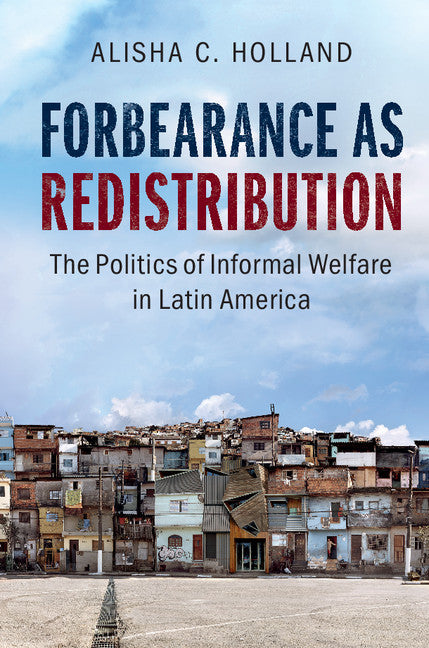Freshly Printed - allow 4 days lead
Couldn't load pickup availability
Forbearance as Redistribution
The Politics of Informal Welfare in Latin America
The book explains why and when laws go unenforced in developing countries.
Alisha C. Holland (Author)
9781107174078, Cambridge University Press
Hardback, published 16 June 2017
400 pages, 50 b/w illus. 10 tables
23.6 x 15.7 x 2.6 cm, 0.66 kg
'This is one of those rare books that changes forever the way you think about an issue, in this case the endemic and enduring informality found across the developing world.' Ben Ross Schneider, Massachusetts Institute of Technology
Why do governments tolerate the violation of their own laws and regulations? Conventional wisdom is that governments cannot enforce their laws. Forbearance as Redistribution challenges the standard interpretation by showing that politicians choose not to enforce laws to distribute resources and win elections. Alisha Holland demonstrates that this forbearance towards activities such as squatting and street vending is a powerful strategy for attracting the electoral support of poor voters. In many developing countries, state social programs are small or poorly targeted and thus do not offer politicians an effective means to mobilize the poor. In contrast, forbearance constitutes an informal welfare policy around which Holland argues much of urban politics turns. While forbearance offers social support to those failed by their governments, it also perpetuates the same exclusionary welfare policies from which it grows.
1. An electoral theory of forbearance
2. Who votes for forbearance
3. What enables forbearance: inadequate social policy and squatting
4. When politicians choose forbearance: core constituencies and street vending
5. Where forbearance occurs: the role of electoral institutions
6
Why forbearance continues: path dependencies in the informal welfare state
7. How forbearance ends: lessons from Turkey.
Subject Areas: Constitution: government & the state [JPHC]


